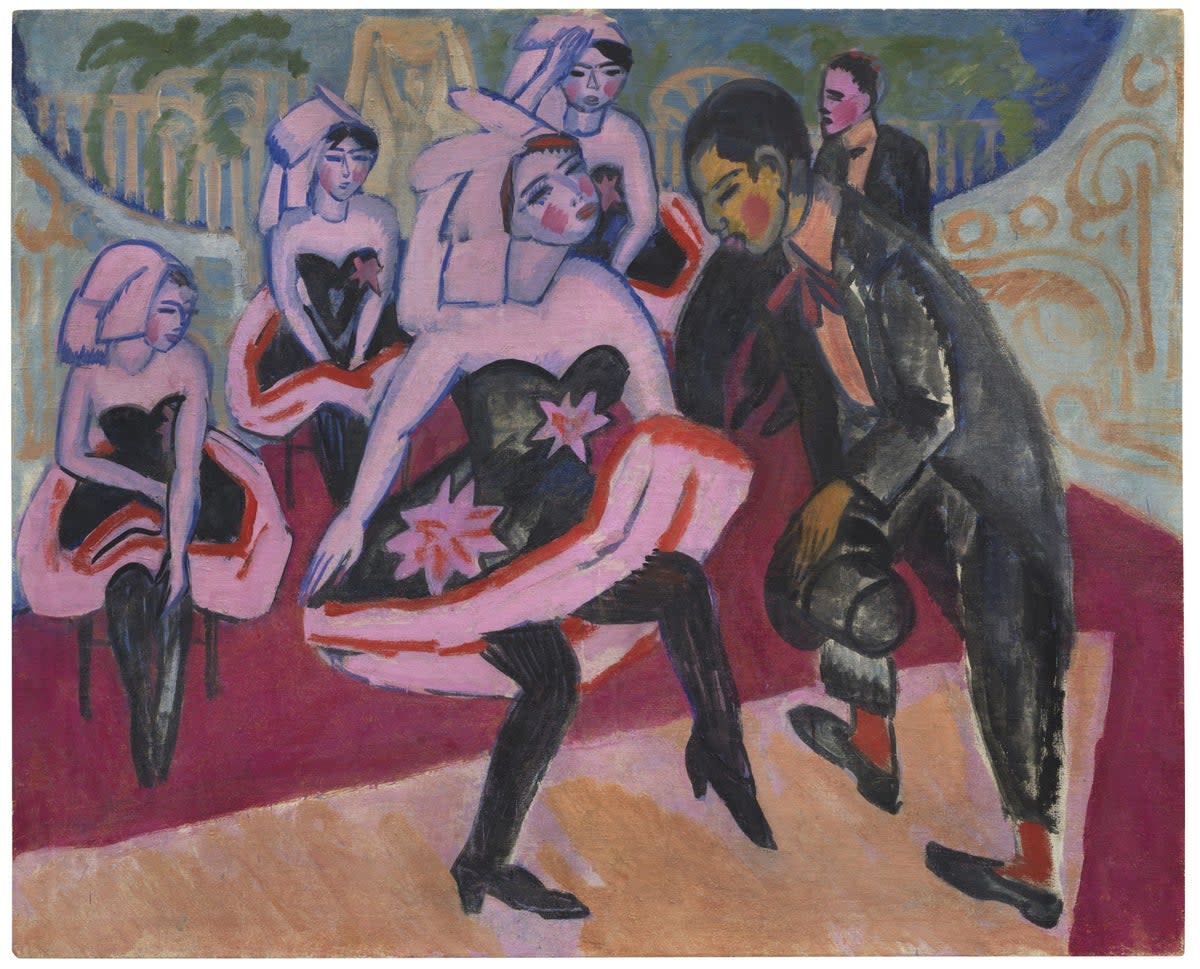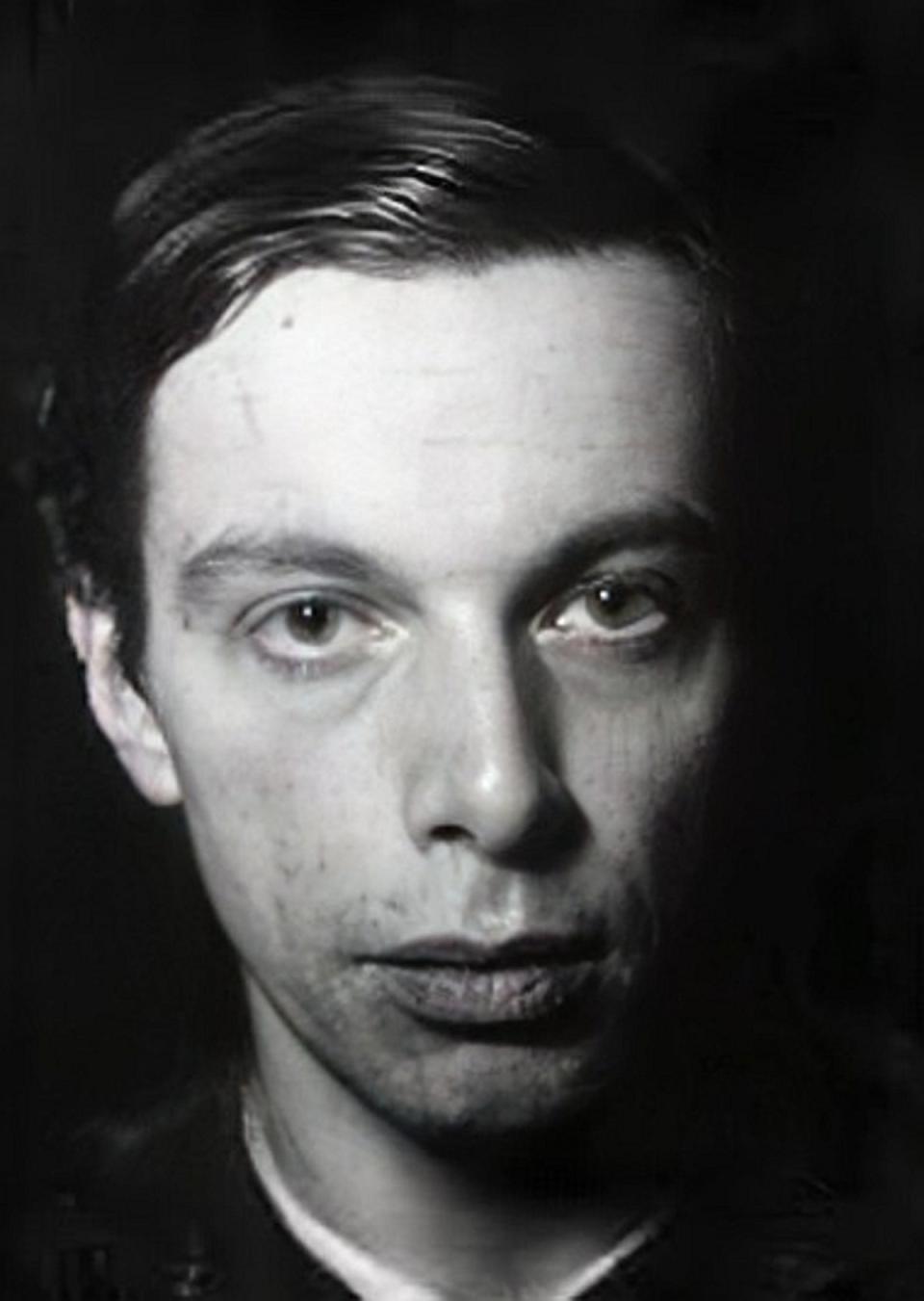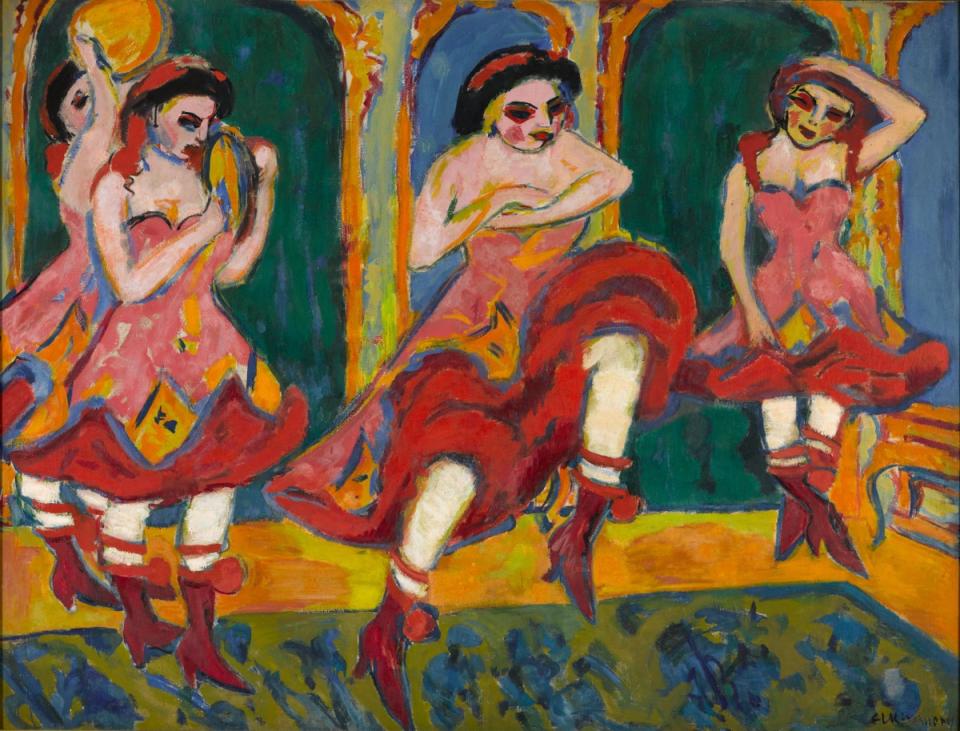Painting banned by Nazis and lost for 80 years stuns art world as it sells for £6m at auction

Missing for 80 years and thought lost, a painting banned by the Nazis has sold for almost £6m (€7m) at auction.
Only seen before in black-and-white photos taken by the artist themself, Tanz im Varieté took art historians across the world by surprise when it turned up at a Munich auction house earlier this year.
German expressionist Ernst Ludwig Kirchner, who is known for his vibrant abstract pieces, was included on the Nazis “degenerate art” list which saw over 600 of his works sold or destroyed under the regime.
Tanz im Varieté was thought to be among them, until it resurfaced in what art historians believe to be a “sensation”.
The oil on canvas painting, dated to 1911, depicts a black man and a white woman dancing the cakewalk among a crowd at a party. The dance was popularised by African-American dancers across Europe in the early 20th century.
The painting was owned by a jewellery designer in 1944 but was kept hidden in a heavy duty crate on a farm in the countryside to protect it from Allied aerial bombardment and the risks of the Nazi party finding it.

When French troops took the village in 1945, the crate was discovered and forced open and the canvas was damaged by a bullet and a stab with a bayonet.
Auction house Ketterer Kunst said that a bullet hit the head of one of the female dancers on the left while the male dancer’s torso was pierced.
Fortunately, the soldiers, left the crate with the painting behind and the painting was rescued and restored.
The owner then gave the painting to his two children in 1980 on his 75th birthday, and told them to return it to public view in the future. The previous owners chose to remain anonymous.
The damage is still visible on the work’s reverse side, but that did not stop it from being sold for a huge sum at Ketterer Kunst on Friday.
The sale exceeded the auction house’s expectations by fetching €6,958,000 (£5,875,509) - more than double than the €2,000,000 estimated.
“The work has literally been waiting in the wings of art history for a century to step into the limelight,” the auction house said.

They added that the painting reflects social upheaval in Germany before the First World War and “is a homage to the golden age of entertainers who, before the First World War, sent audiences into ecstasy with their show dances.”
Kirchner died in Switzerland in 1938 in what was believed to be a suicide at the time, however historians have since said he was likely shot in the heart by someone else.
Theories range from his partner, neighbouring farmers or local Nazis pulling the trigger but the actual circumstances around his death remain uncertain.


